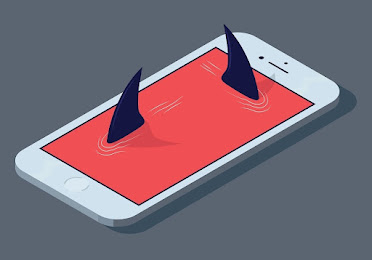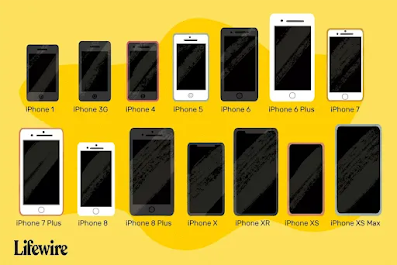January 9th, 2007. Steve Jobs, CEO of Apple, first reveals the iPhone at a Macworld convention in San Francisco, California. He described the phone as a "revolutionary and magical product that is literally five years ahead of any other mobile phone." On June 29th of the same year, the iPhone went on sale, changing the world of communication forever. Just four short months later, 1.4 million iPhones had been sold as Time Magazine named the product "The Invention of the Year."
Although many believe that Jobs was "always thinking ten years ahead of the rest of the computing and electronics world," he really envisioned the iPhone as just that: a phone. Even with the phone's "game- changing innovations," Jobs wanted it to be a cell phone first, the main goal of the product was to have it fit comfortably in the customer's hand. He believed the iPhone was the perfect size to fit in one's hand for making phone calls because he saw that as the most important function. The iPhone took two-and-a-half years to develop, and it really wasn't Jobs' idea. After releasing the iPod in 2001, Apple executives worried that iPod sales would plummet after cell phone companies figured out how to put MP3 players on their phones. Apple had to do it first.
"Socializing, which used to be a non-media activity, now occurs on social media and over internet connections." We are raising generations that can barely speak to others face-to-face because they have little experience with social skills when all the communication they are involved in rests at their fingertips. The young people of today need constant validation, yet they are afraid or anxious when having to speak to others their age in person. The iPhone completely changed humans' ways of communicating. It began with audio calling, the best and most important feature of the first iPhone, but it slowly progressed into a way of contacting each other that sometimes doesn't use words at all. From calling to video chatting to texting to using emojis or just pictures on Snapchat. We have learned to just talk to others through pictures, which has taken a toll on communicating in person.
IPhones can be bad for our brains as they allow us to do too many things at once and cause us to ignore the world around us. Our phones can actually cause a decrease in our cognitive abilities as we focus on multiple things at once. We ignore the world and others around us with our eyes glued to a screen. We only half listen to friends or partners while being distracted by a notification, putting strain on our everyday relationships. We struggle to sit still and appreciate calm relaxing nothingness as we always expect to be entertained by media and technology.
When researching how the iPhone changed our lives and the world, a lot of the negative impacts surface. While I agree the negative effects need to be acknowledged and discussed, sometimes the positive aspects are lost sight of. These devices allow the internet to be at our fingertips, we are able to find any information we could ever think of, and we are allowed to contact and stay in touch with people from all over the world. An iPhone means you have "constant access to a wide range of enriching and empowering activities." Innovative ways to connect and communicate can open up a new world, providing exposure to different people and ideas. Communication can be seen as easier to people who now don’t have to be physically present to be involved. "The ability to take photographs and participate in social media can be empowering, allowing one person to share their perspective with millions." The iPhone was an amazing invention that quickly became integrated into our everyday lives and changed how the world works and communicates. Although it has its downsides, we would not be where we are today without it.









No comments:
Post a Comment